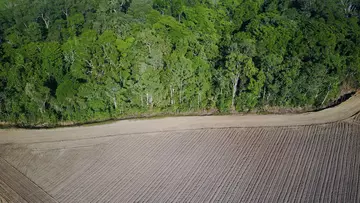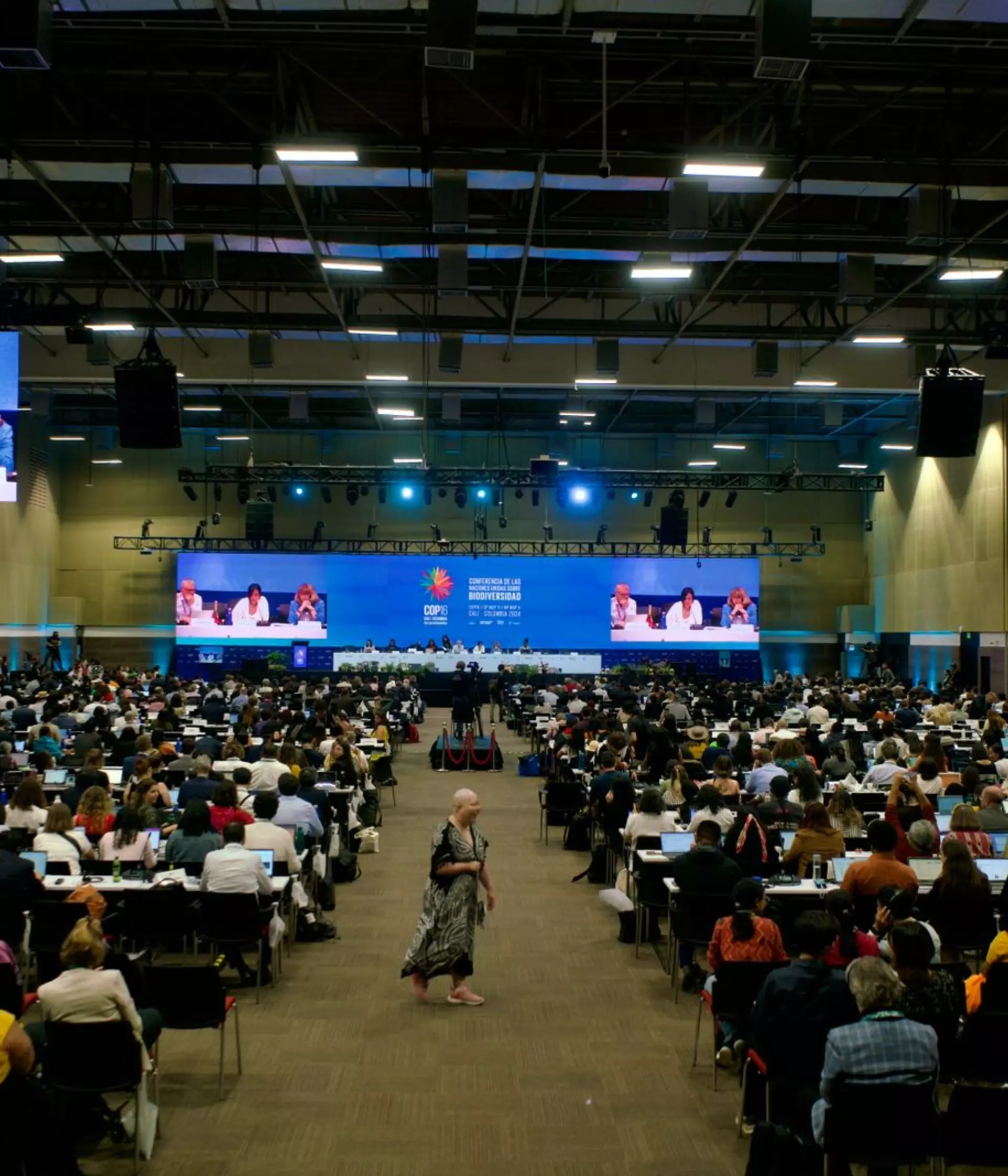
Georgina Chandler
Head of Policy and Campaigns
In October, I arrived in Cali, a small city in northern Colombia, to join the vibrant displays of the most attended (to date) Conference of the Parties (COP16) for the Convention on Biological Diversity (CBD).
With thousands of participants, six heads of state, and over 100 ministers present, this was supposed to be a significant stepping stone for biodiversity action. However, the outcome of COP16 was not as definitive as we had hoped.
After 14 hours of final-day negotiations, time was running out, and the number of delegates in the room dwindled. Ultimately, according to quorum rules, not enough countries were left to reach a consensus on crucial issues like resource mobilisation, the monitoring framework, and the budget for the secretariat's operations, leaving the two-week-long event in suspension.
Following the landmark decision on the Global Biodiversity Framework (GBF) two years ago, I summed up our expectations in media interviews: “COP15 decided the "what" of global action on the biodiversity crisis, and COP16 needed to step up with the "how" to enable and mobilise effective implementation.” Yet, three of some of the most significant items remain undetermined.
Don't let a pause in CBD negotiations hold back our actions on the ground
Waiting for a date to finalise the talks should not hold parties back from implementing the commitments they agreed to in 2022. Five more countries have submitted their National Biodiversity Strategies and Action Plans (NBSAPs), bringing the total to only 44 out of 196 parties that have submitted their updated plans.
It's alarming that we have only five years left to meet our global goal of halting biodiversity loss, but there are reasons to stay hopeful. We know what we need to do to meet these goals and targets, and we have made progress at COP16 on several key issues.
Positive Outcomes
COP16 is not officially over until all the decisions have been made and the COP16 presidency (Colombia) hits the final gavel. However, two notable items have already passed:
COP16 has recognised that the climate and biodiversity crises are two sides of the same coin

In the run-up to the current UNFCCC COP29 meetings in Baku and further climate negotiations in Brazil next year, these negotiations have opened the door to better-connected actions between the climate and biodiversity processes.
This is critical because we know that biodiversity and climate crises are shared problems with shared solutions. For example, Mangrove forests are a nature-based solution to climate change, with the ability to store up to four times as much carbon as other tropical forests. They are also a thriving ecosystem for wildlife and local coastal communities, a source of food they eat, and crucial protection from storms and erosion.
I’m so pleased to hear that our Chief Mangrove Scientific Adviser, Dr Jurgenne Primavera, a marine biologist leading efforts to restore mangroves in the Philippines, will attend the First International Mangrove Conservation and Restoration Conference in Abu Dhabi next month alongside our Mangrove project managers.
A new subsidiary body for Indigenous People and Local Communities created
A new subsidiary body provides a dedicated, permanent space for Indigenous Peoples and Local Communities within the CBD, a significant development that will ensure the vital contributions of traditional knowledge are valued in global discussions.
For decades, we’ve actively woven Indigenous Peoples' and Local Communities' knowledge and practices into our research and conservation initiatives, recognising their critical role in fostering a sustainable relationship with the environment.
Agreement to estalish the new "Cali Fund"
The landmark ‘Cali Fund’ is a step to ensure that companies profiting from natural genetic resources contribute their fair share to biodiversity conservation and the countries and people. Many details are still being worked out, but 50% of the fund will be allocated to Indigenous People and Local Communities.
Meeting with key people all in one place
While not every attendee at COP is there to participate in the negotiations, everyone is passionate about fulfilling the goals of the CBD GBF.
While Bethan Laughlin, our Senior Policy Specialist, and I focused on the negotiations, other delegation members joined in with a vibrant display of action for nature recovery, from innovative finance to youth engagement to species recovery projects.
To protect and restore global biodiversity, the world must raise about $1 trillion annually. Around 80% of that is expected to come from the private sector – which is where sustainable finance models come into play.
Whether partnering with governments, local organisations, or the private sector, they all ask for our help on four main items: Data and Metrics, Capacity Building, Access to Finance, and Policy Engagement. James explained this in a blog post just before COP16.
Our time in Cali
I cannot discuss our COP16 experience without applauding our three Colombian EDGE fellows who were part of the delegation: Andrea Natalia Martínez Bulla, who is working on the Caribbean lesser funnel-eared bat; Liliana Patricia Saboyá Acosta, focused on the Colombian Dwarf Gecko; and Mónica Franco Gutiérrez, who is dedicated to the Great Green Macaw, accompanied by Davi Teles, our regional EDGE coordinator.
It was an honour for ZSL to be represented by three incredible female conservationists from Colombia, especially with all eyes on the country during this event. These are just a small example of some of the astounding work of our EDGE fellows who wave the flag for innovation and discovery to save the world’s Evolutionarily Distinct (ED) and Globally Endangered (GE) species.
The highs and the lows of the negotiations always leave me reflective but also more determined than before to advocate for the species and ecosystems we all depend on. I hope all the attendees at COP16 are left with a similar fire in their hearts for restoring vital landscapes, ecosystems, and species, especially those already deliberating at the ongoing Climate COP29 negotiations. Let’s keep this momentum going towards COP17 in Armenia and create a world where wildlife can truly thrive!
